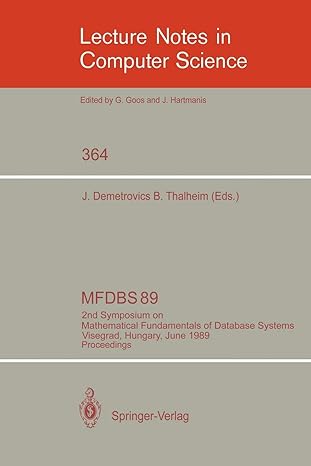Question
Q1. What are the threads and their using importance? Q2. Explain the principle operation of Lightweight processes. Q3. Should an OS kernel provide threads, or
Q1. What are the threads and their using importance?
Q2. Explain the principle operation of Lightweight processes.
Q3. Should an OS kernel provide threads, or should they be implemented as user-level packages? Explain
Q4. What are the benefits of using threads at client and server sides?
Q5. Why Virtualization is important?
Q6. Mention the differences between the various ways of virtualization.
Q7. What are the two supported ways in Client-server interaction?
Q8. What is the basic model of servers? Is there any importance for concurrent servers? Explain
Q9. What is the situation in which the servers can be interrupted and how to handle these interruptions?
Q10. Which is preferable, Stateless or stateful servers? Why?
Q11. Give reasons to migrate code.
Q12. What is the main issue of Migration in heterogeneous systems? Give solution.
The following questions are optional, not mandatory, but have a bonus in grades
Q13. Statically associating only a single thread with a lightweight process is not such a good idea. Why not?
Q14. Having only a single lightweight process per process is also not such a good idea. Why not?
Q15. Describe a simple scheme in which there are as many lightweight processes as there are runnable threads
Q16. Constructing a concurrent server by creating a process has some advantages and disadvantages compared to multithreaded servers. Mention a few.
Step by Step Solution
There are 3 Steps involved in it
Step: 1

Get Instant Access to Expert-Tailored Solutions
See step-by-step solutions with expert insights and AI powered tools for academic success
Step: 2

Step: 3

Ace Your Homework with AI
Get the answers you need in no time with our AI-driven, step-by-step assistance
Get Started


